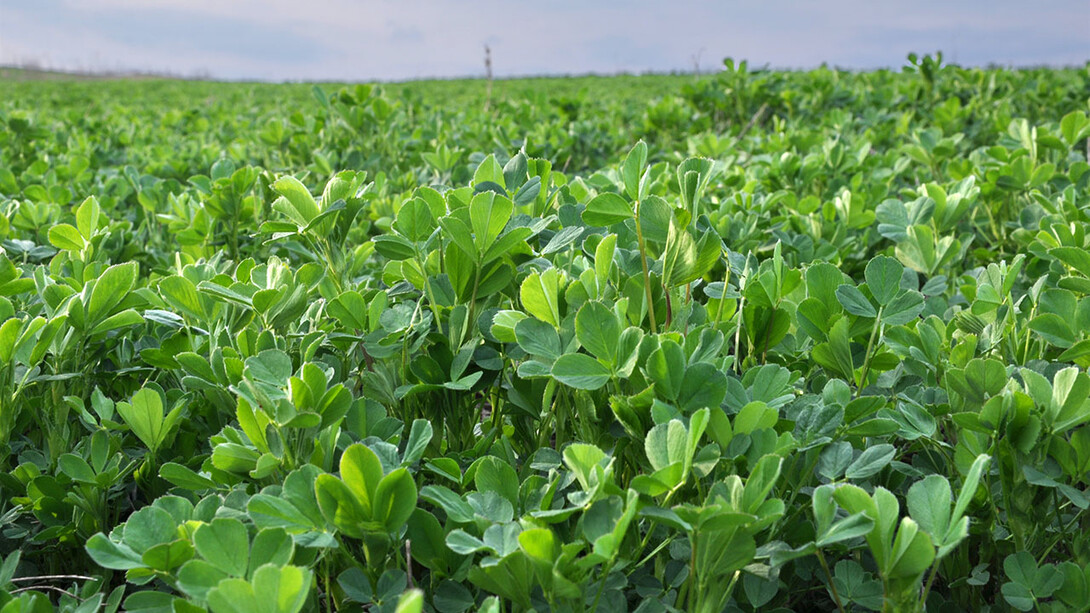
A University of Nebraska–Lincoln project to use flaming technology on alfalfa to preserve soil health and prevent water degradation has received a $141,143 grant from the Nebraska Environmental Trust.
The project will develop innovative flaming technology to control pests and weeds in alfalfa production. Alfalfa, a critical component of dairy rations, is the fourth-most-planted crop in the United States at 17 million acres. There are 830,000 acres of alfalfa in Nebraska.
“We have successfully developed flaming technologies for corn, soybeans and sunflower,” said George Gogos, professor of mechanical and materials engineering and project lead. “Research that we conducted at UNL was commercialized through a new propane flaming company. We are now ready to replicate in alfalfa production our prior success.”
Weevil, the main alfalfa pest, lays its eggs inside the alfalfa stems. To destroy the eggs effectively while maintaining reasonable tractor speeds, higher temperatures are required, Gogos said. Vaporizer/torch units and shields need to be redesigned and then used to obtain propane doses and flaming recipes for pest and weed control in alfalfa.
Gogos’ team already has started work in the Combustion Lab to redesign the flaming equipment and make it appropriate for alfalfa flaming. Also, Stevan Knezevic, professor of integrated weed management in agronomy, and his research team started doing alfalfa flaming during fall 2020 and spring 2021 in the fields of two farmers in Abbie, Nebraska.
The university will hone the technology, conduct the pest and weed control studies, and within three years provide alfalfa farmers with recipes and safe, energy-efficient and easy-to-use flamers. The benefits to the environment, the farmers and the public would be significant: costly chemicals typically sprayed for pest and weed control in alfalfa production would be eliminated, soil health will be preserved, and surface and groundwater degradation will be prevented.
The project is one of 23 Husker projects receiving more than $2.1 million from NET this year. In total, NET awarded 113 grants totaling more than $18 million in 2021.
The Nebraska Legislature created the NET in 1992. Using revenue from the Nebraska Lottery, the trust has provided more than $349 million in grants to more than 2,400 projects across the state. Anyone — citizens, organizations, communities, farmers and businesses — can apply for funding to protect habitat, improve water quality and establish recycling programs in Nebraska. The NET works to preserve, protect and restore the state’s natural resources for future generations.







